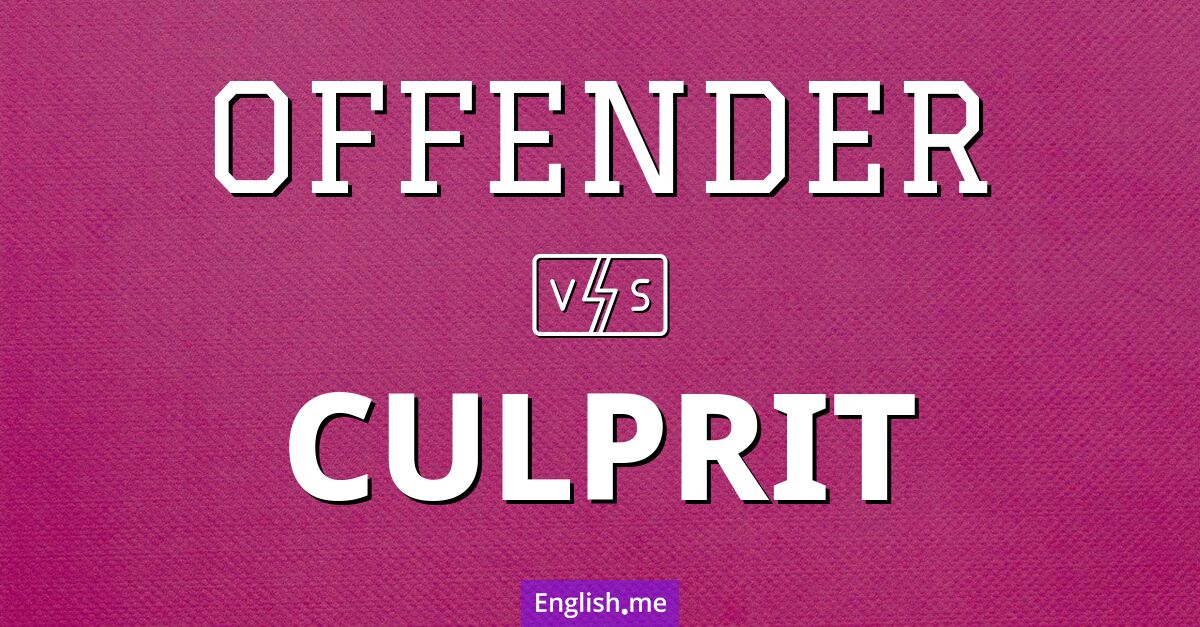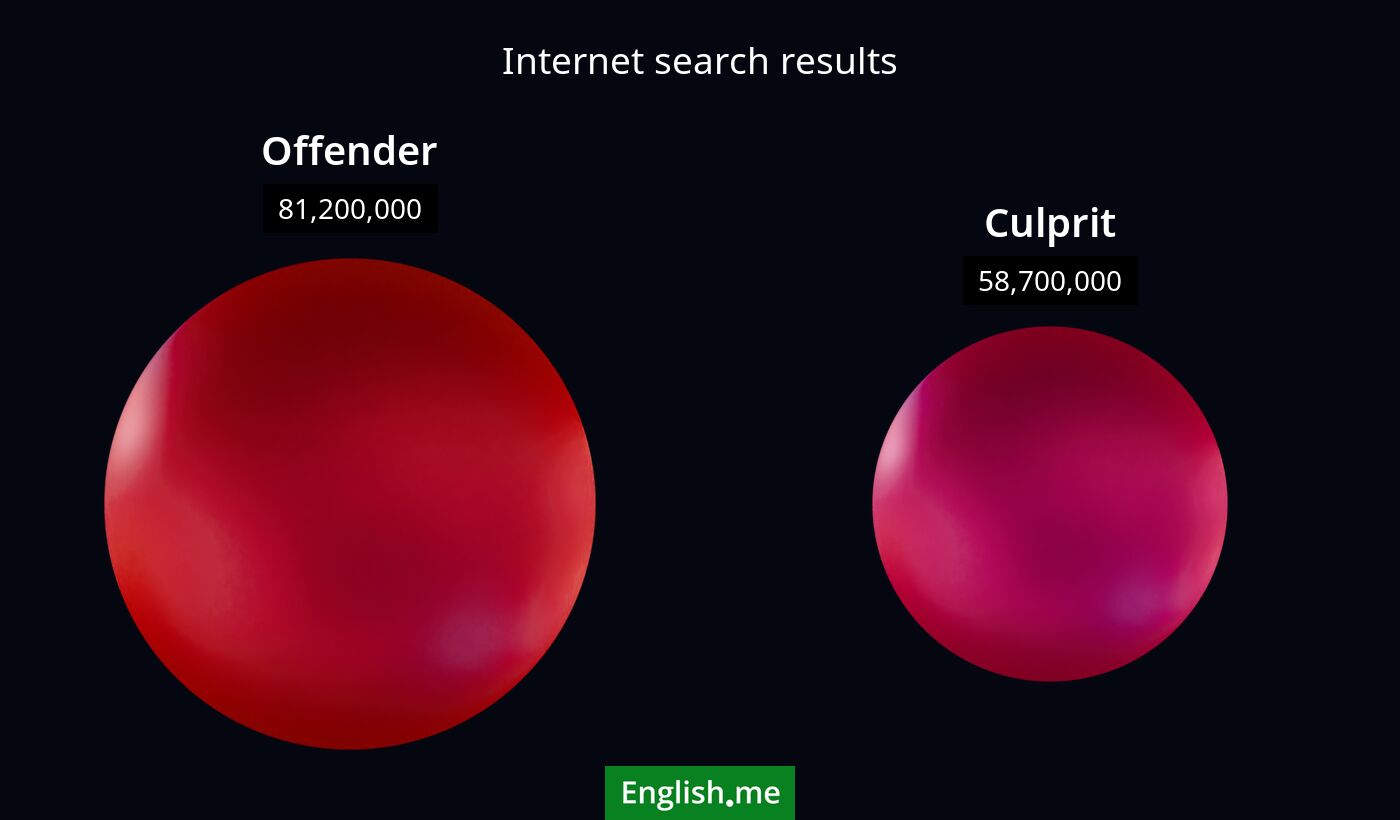"Offender" and "culprit": different shades of guilt

 What is similar?
What is similar?
Both "offender" and "culprit" refer to someone who has committed a wrongdoing or offense. They are used to describe individuals responsible for misdeeds, crimes, or violations, and can appear in legal or informal contexts.
 What is different?
What is different?
"Offender" is a general term often used in legal contexts to describe someone who has broken a law or rule, without necessarily specifying the particular act. It emphasizes the violation of laws or regulations. "Culprit" specifically refers to the person responsible for a particular offense or problem and is often used when identifying or seeking the source of that specific issue. "Culprit" can also be used metaphorically for non-human causes of problems, whereas "offender" typically refers to people.
 Which one is more common?
Which one is more common?

 Examples of usage
Examples of usage
Offender- The police apprehended the offender shortly after the incident.
- First-time offenders may receive a more lenient sentence.
- Rehabilitation programs aim to help offenders reintegrate into society.
- After a thorough investigation, the culprit was identified.
- The faulty wiring was the culprit behind the blackout.
- Who's the culprit responsible for this mess?

 English
English español
español française
française italiano
italiano deutsche
deutsche 日本語
日本語 polski
polski česky
česky svenska
svenska Türkçe
Türkçe Nederlands
Nederlands